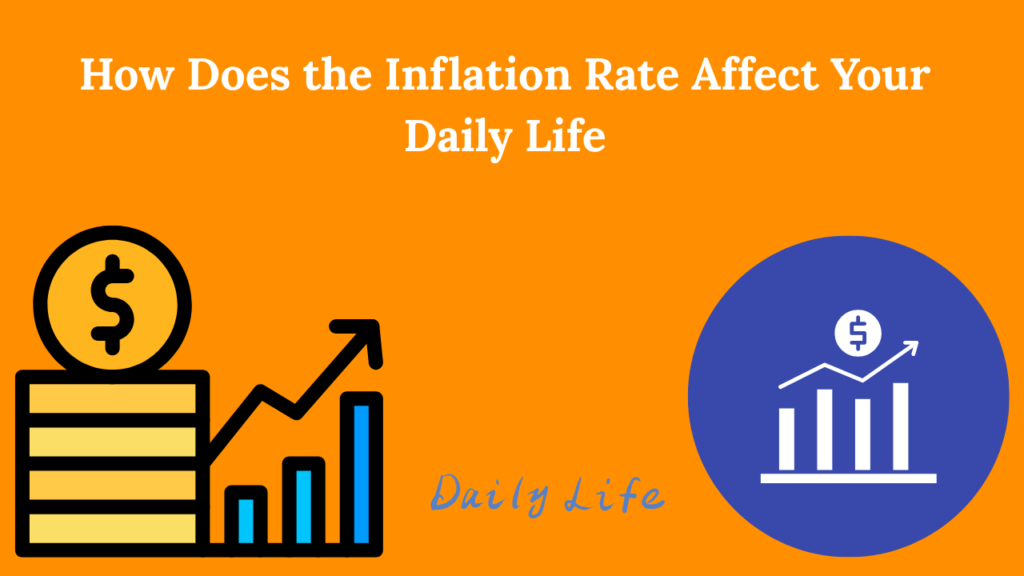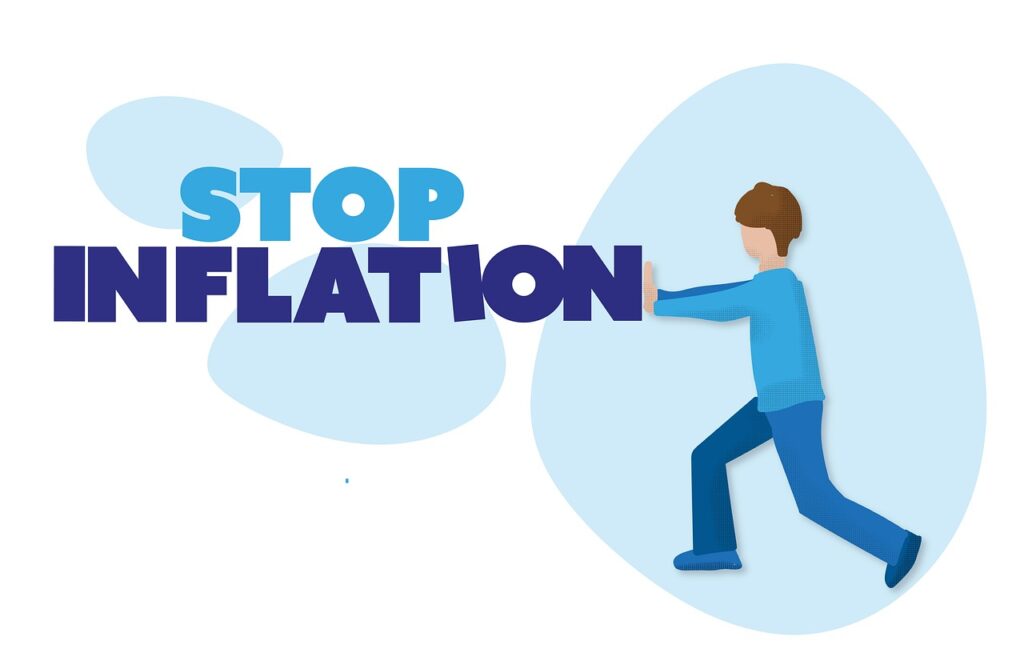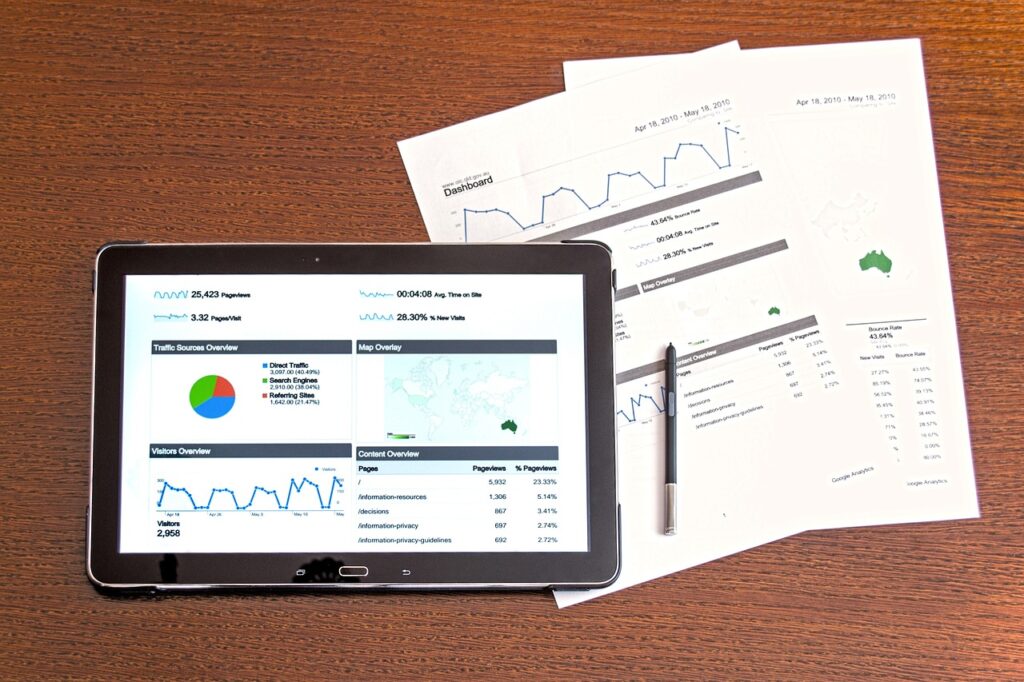How Does the Inflation Rate Affect Your Daily Life in 2025– Discover the Shocking Truth About Its Impact on Your Wallet!”

Introduction
Inflation is a term that often surfaces in economic discussions, but its implications extend far beyond boardrooms and government reports. For everyday individuals, understanding how the inflation rate affects their daily lives is crucial. From the prices of goods and services to savings and investments, inflation can significantly shape your financial landscape. In this article, we will explore the multifaceted effects of inflation, provide insights into its causes, and offer practical tips on how to navigate a world of rising prices.

URL Structure
Consider using a URL structure like www.yoursite.com/How Does the Inflation Rate Affect Your Daily Life to enhance SEO. How Does the Inflation Rate Affect Your Daily Life
SEO Meta Description
Discover how the inflation rate affects your daily life, from rising consumer prices to changes in employment and savings. Learn strategies to cope with inflation effectively, How Does the Inflation Rate Affect Your Daily Life.
What is Inflation?
At its core, inflation refers to the rate at which the general level of prices for goods and services rises, leading to a decrease in purchasing power. Central banks typically measure inflation using indices like the Consumer Price Index (CPI) or the Producer Price Index (PPI). When inflation rises, each unit of currency buys fewer goods and services, impacting your wallet directly.

The Causes of Inflation
Inflation can be caused by various factors, including:
- Demand-Pull Inflation: This occurs when demand for goods and services exceeds supply. For instance, during economic booms, increased consumer spending can drive prices up.
- Cost-Push Inflation: This type occurs when production costs rise, leading businesses to pass on these costs to consumers. Factors such as rising wages or increased prices for raw materials can trigger cost-push inflation.
- Built-In Inflation: This arises from the expectation that prices will continue to rise, leading businesses to increase prices preemptively.
Understanding these causes is essential for recognizing how they directly relate to your daily expenditures.
How Inflation Affects Your Daily Life
1. Consumer Prices
One of the most direct ways inflations impact your daily life is through rising consumer prices. When inflation rates increase, the cost of everyday items such as groceries, gas, and utilities tends to rise. This means you may find yourself spending more money for the same goods you purchased last year.
Practical Example
Imagine you spent $100 on groceries each month. With an inflation rate of 5%, you might now have to spend $105 for the same groceries. Over a year, this adds up significantly.

2. Housing Costs
Housing is often one of the largest expenses in a person’s budget. Inflation can lead to increased rents and home prices, making it more challenging for individuals to afford housing. If you’re renting, your landlord may raise the rent in response to rising costs, putting additional financial strain on your monthly budget.
Renting vs. Buying
If you’re considering buying a home, rising inflation can lead to higher mortgage rates as lenders adjust to the changing economic landscape. Conversely, if you’re renting, it is essential to budget for potential rent increases.
3. Savings and Investments
Inflation erodes the purchasing power of your money. If your savings account earns a low interest rate, it may not keep pace with inflation. For example, if your savings account offers an interest rate of 1% and inflation is at 3%, your money effectively loses value over time.
Investment Strategies
To combat the effects of inflation on your savings, consider diversifying your investments. Stocks, real estate, and commodities often provide better returns that can outpace inflation.

4. Wages and Employment
Inflation can also impact wages. While some employers may raise salaries to keep pace with rising costs, this isn’t always guaranteed. In periods of high inflation, the purchasing power of your salary may decrease, leading to financial stress.
Negotiating Your Salary
If you notice inflation impacting your cost of living, it may be time to negotiate your salary or seek employment opportunities that offer better compensation.
5. Debt Management
For those with fixed-rate loans, inflation can be a double-edged sword. On one hand, the real value of your debt decreases over time; on the other hand, if you have variable-rate loans, rising inflation can lead to higher interest rates.
Strategies for Managing Debt
Prioritize paying off high-interest debt during periods of inflation, and consider locking in fixed-rate loans, when possible, to protect yourself from rising rates.
6. Purchasing Power
Inflation directly impacts your purchasing power, which is the amount of goods and services you can buy with your money. As prices rise, your money buys less, forcing you to adjust your spending habits.
Budgeting Effectively
To manage your budget effectively during inflationary periods, reassess your spending priorities. Focus on essential expenses and look for ways to cut back on non-essential purchases.
7. Travel and Leisure
Inflation affects the cost of travel and leisure activities. Rising fuel prices, accommodation costs, and service fees can make vacations more expensive.
Planning Your Trips
When planning trips, consider traveling during off-peak seasons or exploring budget-friendly options to mitigate the effects of inflation on your travel expenses.

Coping with Inflation
1. Increase Financial Literacy
Understanding inflation and its impact on your finances is crucial. Stay informed about economic trends and how they affect your financial decisions.
2. Invest Wisely
Explore investment options that can yield returns higher than the inflation rate. This may include stocks, mutual funds, or real estate.
3. Create a Flexible Budget
Develop a budget that can adapt to changing prices. Regularly review and adjust your budget to accommodate rising costs.
4. Build an Emergency Fund
Having a financial cushion can help you navigate unexpected expenses that may arise due to inflation.
5. Seek Professional Advice
Consider consulting with a financial advisor to create a tailored plan that addresses your specific financial situation and goals.
Conclusion
Understanding how the inflation rate affects your daily life is essential for making informed financial decisions. By recognizing the various ways inflation impacts your finances, you can take proactive steps to safeguard your purchasing power and maintain financial stability. Whether it’s adjusting your budget, exploring investment opportunities, or negotiating your salary, being informed and prepared will help you navigate the challenges posed by inflation.

welcome my site and read useful articleshttps://www.xafsashariif.com
read this helpful articlehttps://www.xafsashariif.com/how-to-become-a-web-developer/







